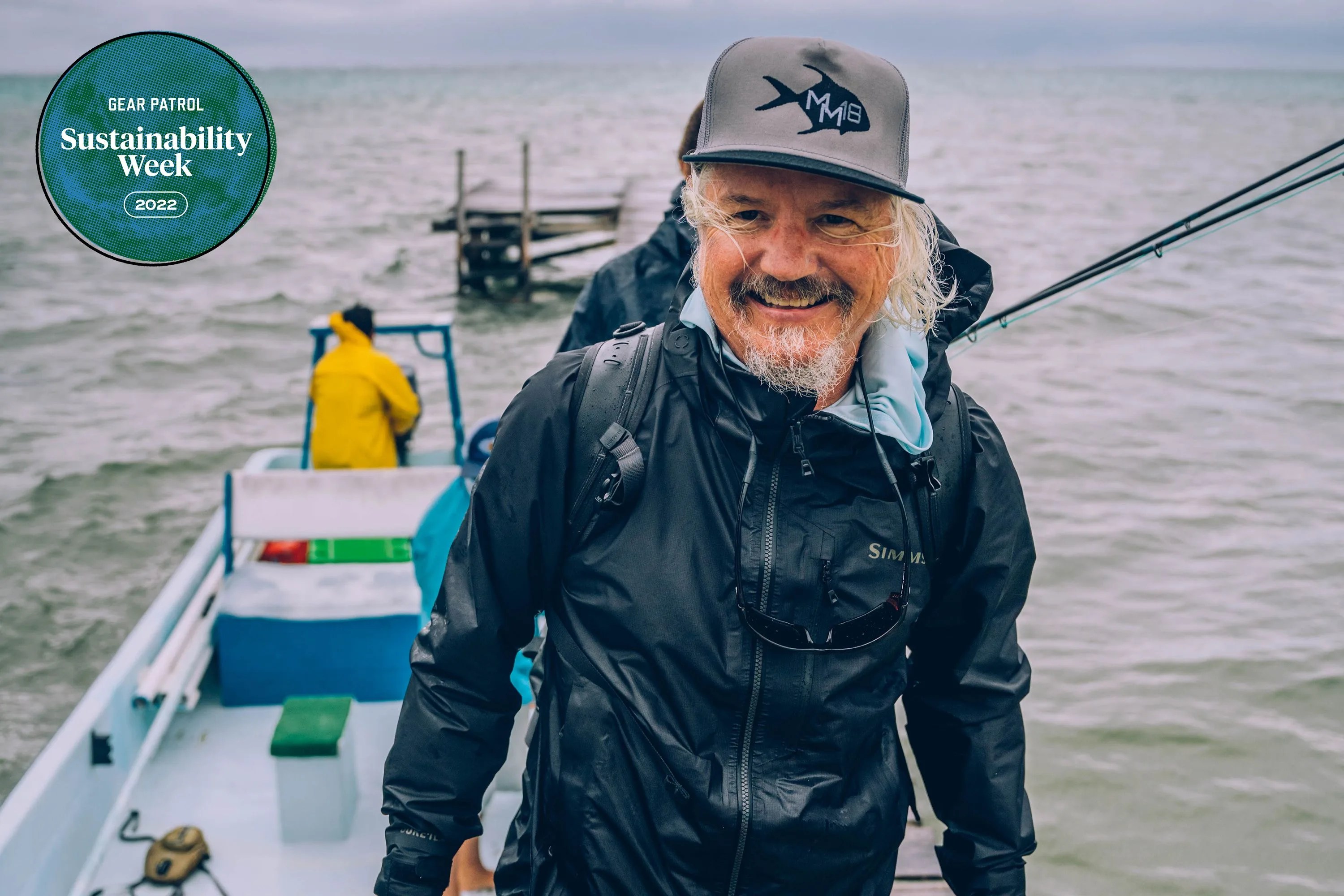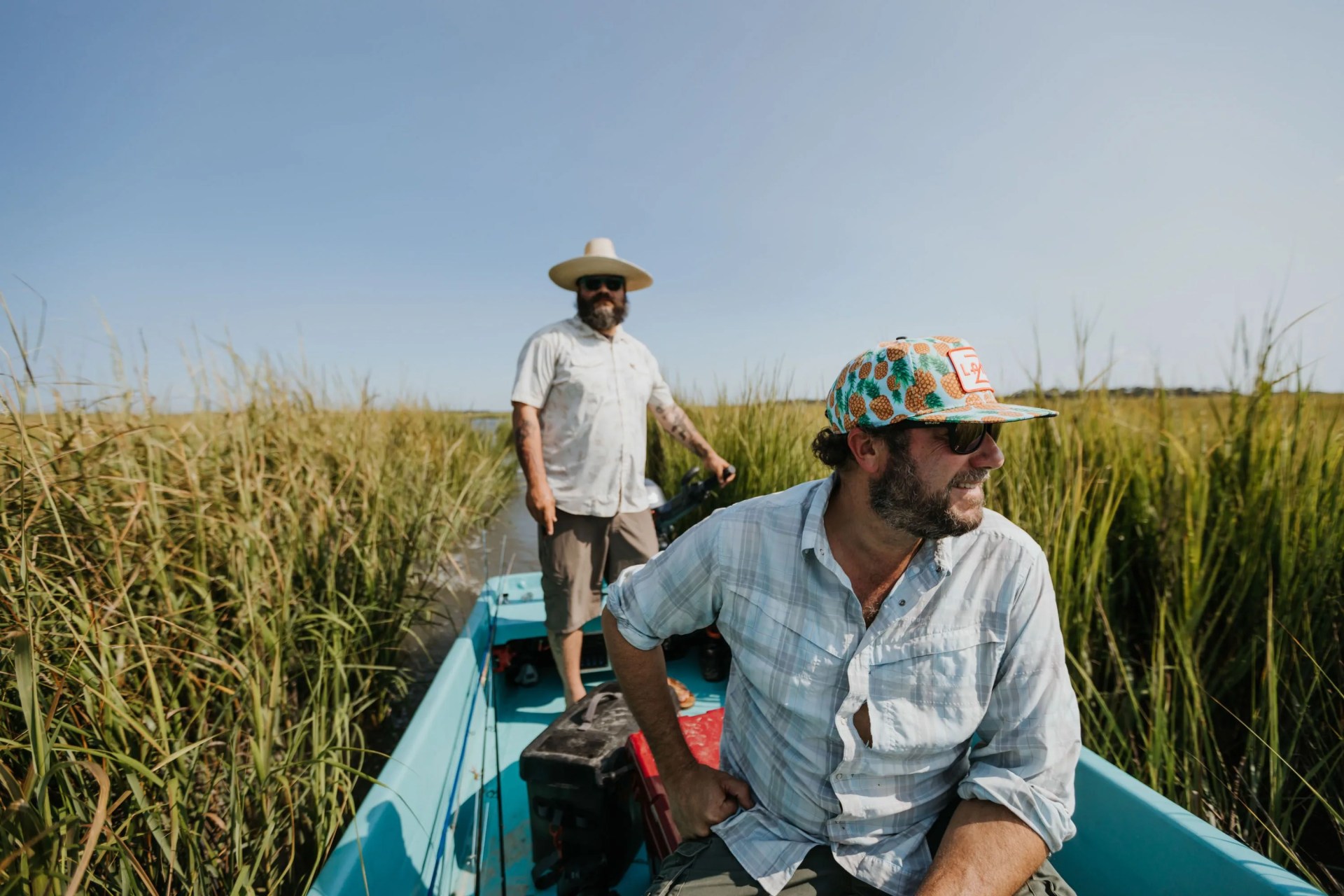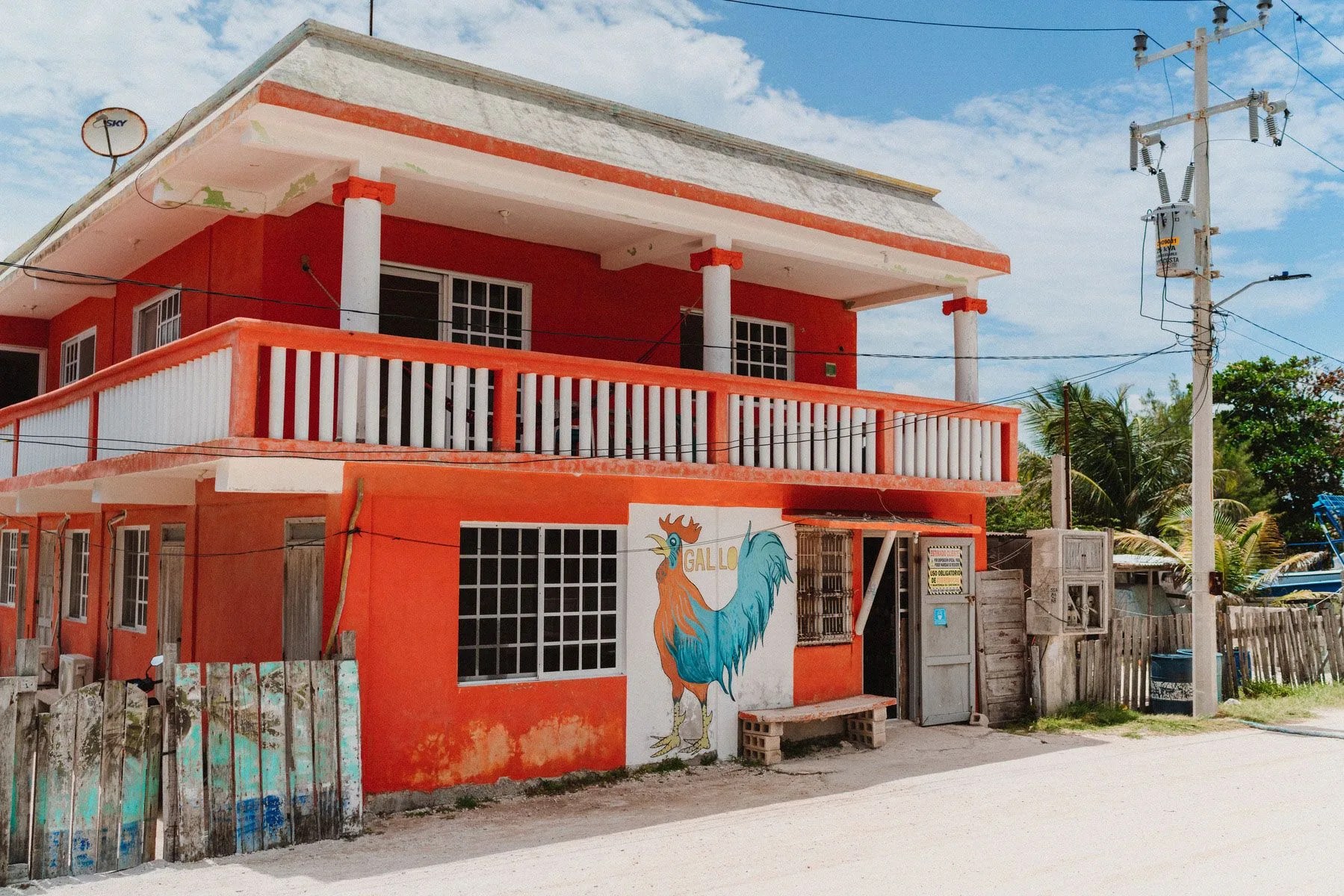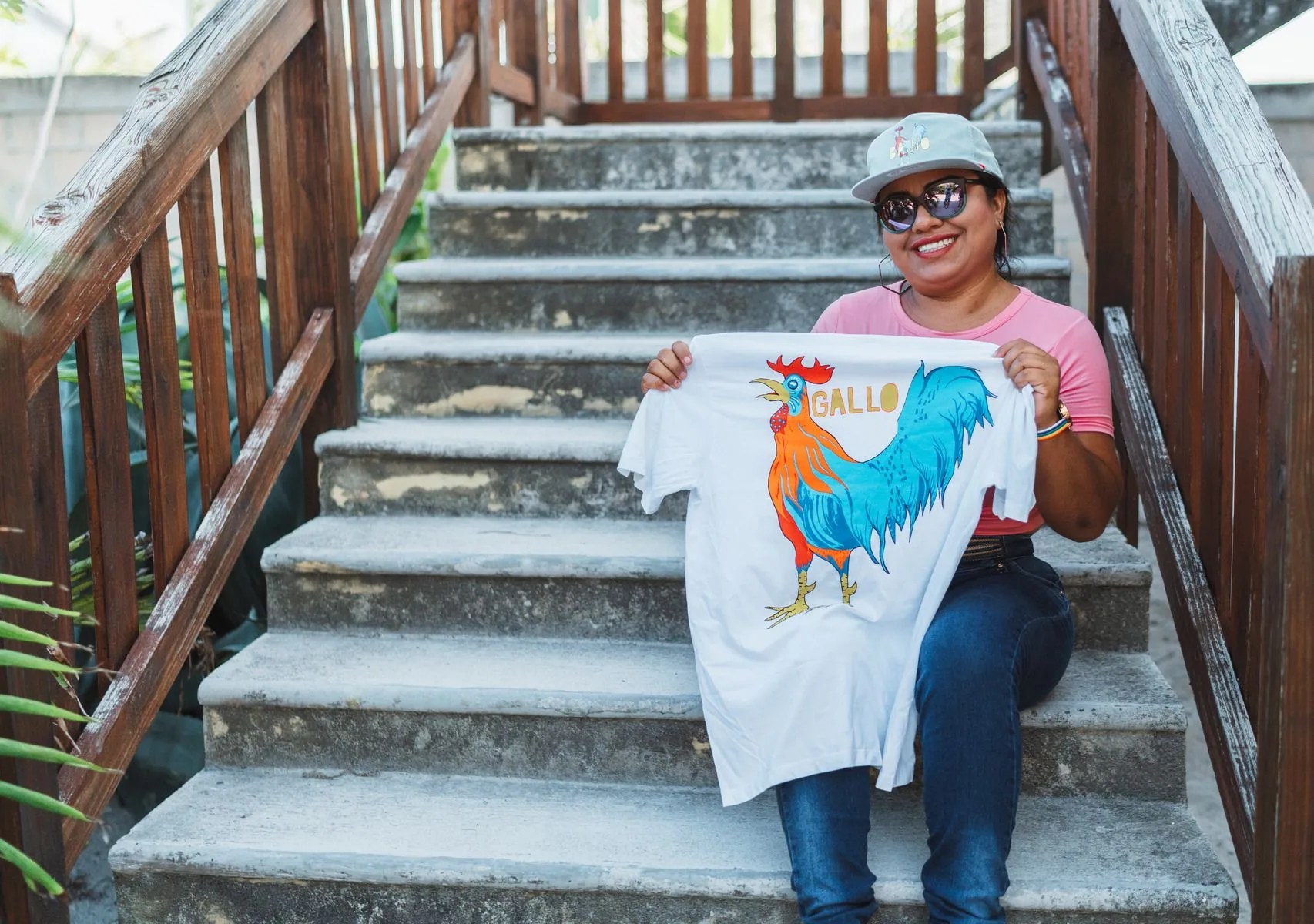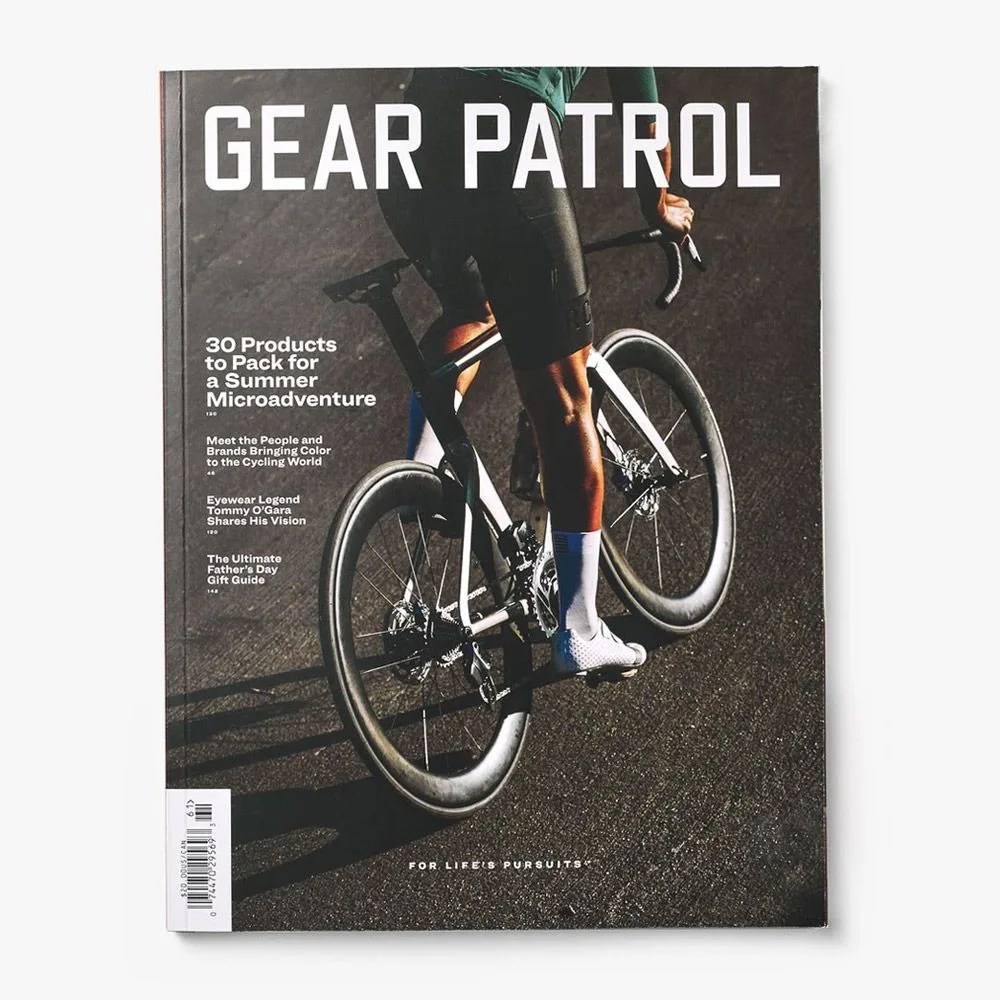This story is part of Gear Patrol’s continuing look at different approaches to sustainability, leading up to Earth Day on April 22nd.
Al Perkinson’s shoulder-length white hair and goatee (pictured above) give him the air of a beach bum who’s struck up a conversation while waiting for his piña colada. Our Zoom call has bridged the frosty late winter of the Northeast and the sunny, 80-degree climes of New Smyrna Beach, Florida, where he resides. Breaking the ice, I joke that I’ve all but forgotten what sandal weather feels like. Reaching down, he plucks a black flip-flop from his foot and holds it up. “Every day,” he responds with a grin.
We’re supposed to be chatting about his nascent performance eyewear brand, Bajío Sunglasses, but five minutes in, we’re off track, waxing poetic about legendary anglers we both admire, the value of a good liberal arts education and right- versus left-brained thinking. With his soft Southern accent and Dude-like vibe, Perkinson’s not what I’d expected from a venerated 60-something CEO, but exactly what I’d hoped for.
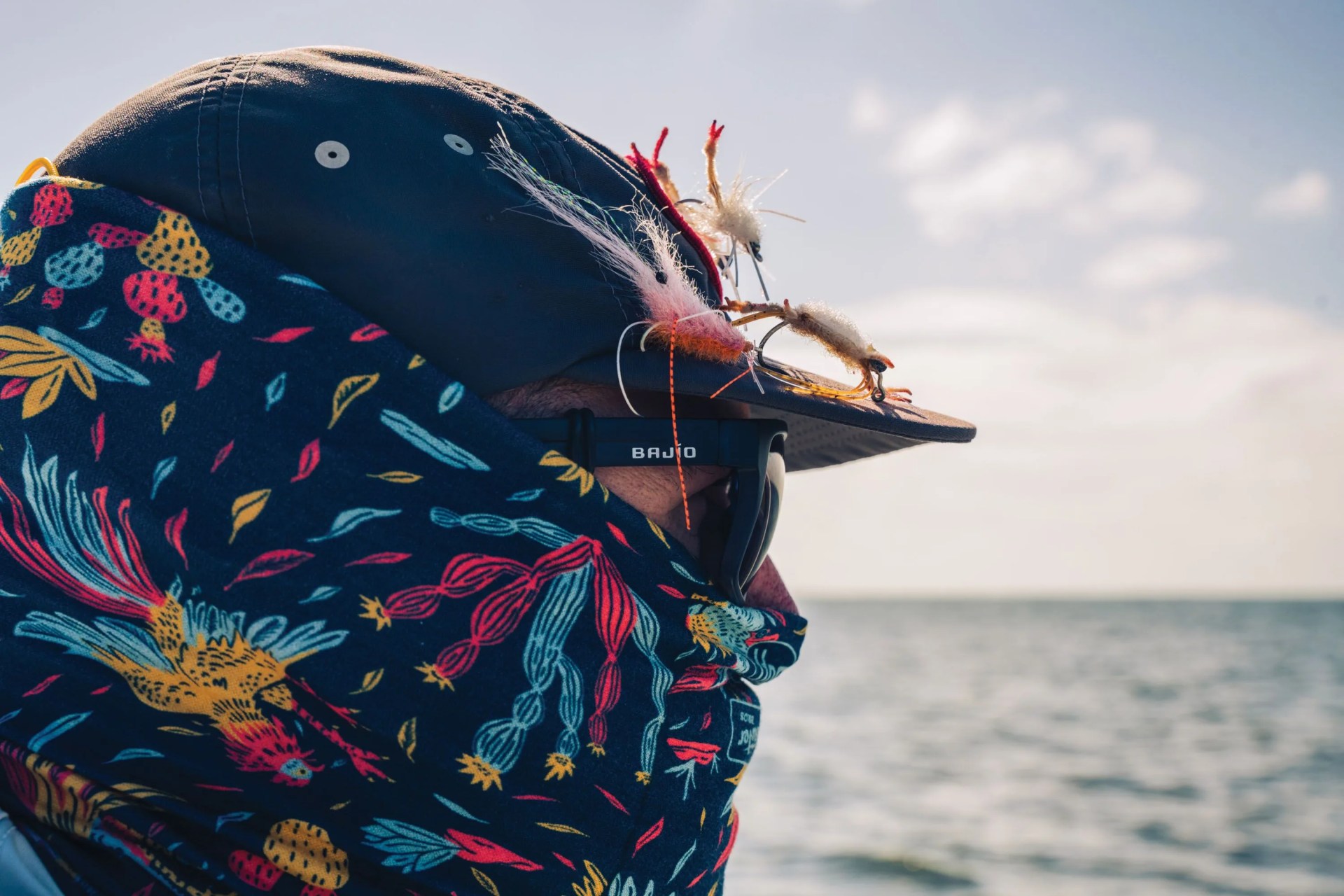
As the marketing wizard behind Costa Del Mar Sunglasses from 2005 to 2016, Perkinson championed conservation initiatives, sustainable materials and funding for fisheries research. An avid angler himself, he hoped to win the hearts of aquatic enthusiasts seeking a company that cared about their communities, not just their credit card numbers, and it worked: Costa grew 20 percent annually for over a decade.
But when French eyewear titan Essilor acquired the brand for $270 million in 2013, the mood started getting more corporate. Three years later, the artistic nonconformist who idolizes Patagonia’s Yvon Chouinard left in search of new opportunities. Then, after tilting at windmills for Simms, Orvis and Huk Gear, he had a realization.
“I was trying to take other people’s companies and turn them into the brands I thought they should be,” he observes. “It just wasn’t working. So we decided to start our own.” In 2020, he and his wife, Marg, quietly hatched Bajío.
